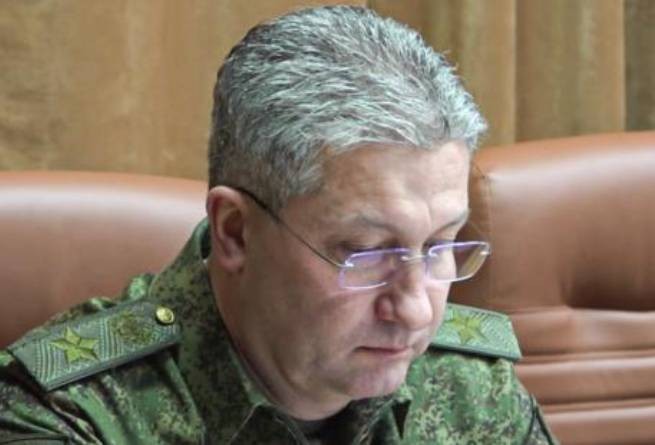So, Ukraine is once again making changes to the legislation, in particular, to the Criminal Procedure Code. The goal is a special regime for the announcement of the SDR (special pre-trial investigation) for two categories of persons:
1. Refugees who left for the Russian Federation
2. Living in Donbass
M. Mogilnitsky, attorney:
Very soon we will be judged in a new way. Are you ready my friends?
An “improved” and “amended” version of the recently adopted law on the “modernization” of the Criminal Procedure Code in terms of conducting a special pre-trial investigation appeared on the official website of the parliament.
So, the SDR is an investigation that is carried out without the participation of the suspect. Thanks to the new law, it will also be carried out without the knowledge of the person involved. Moreover, such a secret investigation can turn into a verdict, which the convicted person learns about only after the fact. Then, therefore, there will be a surprise.
Previously, the court issued a permit for the SDR only if a person was declared on the international wanted list. Now the prosecutor will simply need to prove that the person is in the Russian Federation or in an uncontrolled territory.
Here, Internet experts will certainly grab the word “prove”. If, they say, it is necessary to prove, then this is a completely different matter. I have to disappoint the respected “experts”: the user’s page in social networks, on which he noted his location, and a screen of correspondence, in which the person says where he is now, will go down as proof.
Also, powers of attorney and agreements on the provision of legal assistance will be used, if they indicate the place of conclusion. Well, the cherry on the cake – “according to the SBU.” Very, very secret information of the SBU. She, like all of the above, the court will take for a sweet soul.
And who will this affect? Anyone. Hundreds of thousands of Ukrainians work on the territory of the Russian Federation, millions of Donetsk and Crimean residents live at home. And all these people are regularly visited by friends and relatives, of whom there are also many.
What for? Well, with Interpol, it turned out somehow inconvenient. These shameless foreigners do not want to contribute to politically motivated persecution. We have to somehow get out.
The next important point is information. A person should learn about suspicion or being summoned for interrogation from the Uryadovy Kuryer newspaper or on the website of the Prosecutor General’s Office.
What are you talking about? Not subscribing to Uryadovy Courier? That’s in vain! Because you won’t find it at the nearest kiosk. Then go to the site every day and carefully read the ads section. The websites of the Office of the Attorney General and courts should not be neglected either. Unless, of course, Russia and the uncontrolled territories suddenly block access to the websites of Ukrainian state bodies and a government newspaper.
Can this “happiness” be appealed? In theory, yes. If you file an appeal on time and a free lawyer close to the SBU is not brought in to defend you. Such one will write a formal appeal on your verdict and write wasted. Appealing the sentence again is not a trivial task.
In most European states, there is a rule that allows a convict who has returned to his homeland to revise a sentence in absentia if so wishes. But in Ukraine from Europe only prices, “recommendations” and second-hand.
As for the criminal structures for which a verdict in absentia is possible, the list of them is very extensive. Here you and the spread of communist symbols, and treason, and the financing of terrorism. In other words, those articles on which cases are more often fabricated in our country.
It is not hard to guess that the new law is directed against business competitors, political rivals, “wrong” journalists and public figures. Riveting sentences without any resistance is both easier and safer.
In the future, this will reflect the new categories of complaints to the ECtHR. After all, this law contradicts the practice of the European Court of Human Rights. A person, in the opinion of this practice, must be notified both of the fact of the accusation and of what exactly he is accused of. All this has nothing to do with the domestic wording “considered notified”.
Now the president will bless the law with his signature, it will be published, and the very next day the life of Ukrainians will sparkle with completely different colors.
About this wonderful initiative I remembered: Directive “Darkness / Night and Fog”.
On December 7, 1941, Adolf Hitler signed a secret directive codenamed “Night and Fog” (Nacht und Nebel). Later in German documents it was referred to under the designation “NN”. The original name of the document became known only after the Nuremberg trials, which had previously been interpreted as a sequential number. The directive allowed the kidnapping of anti-Nazi political activists throughout the territory occupied by Germany during World War II. The purpose of the directive was not so much the physical elimination of persons objectionable to the regime, but through their relatives and friends to intimidate the population of the occupied territories. The execution of the directive was entrusted to the OKW and the Gestapo. Thus, another type of punishment appeared in Nazi Germany – disappearance without a trace.
The instructions issued by the OKW and the Gestapo were ordered to secretly kidnap opponents of the regime, deliver them to German territory and hold them on trial by a military tribunal for 8 days. If the abducted person was not sentenced to death, he was ordered to be kept in a concentration camp indefinitely. At the same time, notifying relatives of the fate of the abducted person was strictly prohibited. It is known that in the period from May 1943 to April 1944, 2,696 prisoners of category NN were held in the Estervegen concentration camp. According to the historian Wolfgang Sofsky, the heads of the NN prisoners (both men and women) were shaved baldly. They were dressed in prison uniforms with wide red stripes. On the backs and on both legs there were stripes with a cross and the letters NN. This category of prisoners, like other prisoners in the camp, were also subjected to forced labor, and after exhaustion or illness, they were exterminated in gas chambers.
After the directive was issued by April 30, 1944, 6,639 people were abducted, about 340 of them were executed. Relatives also did not receive news of the execution or death; they did not issue parting letters and wills. Burial places were not registered. The Nazis even coined a new term for those who “disappeared” under this directive; they were vernebelt – “turned into fog.” The exact data on the number of abducted and killed is still unknown. In total, according to experts, from 7 to 10 thousand people suspected of participating in the Resistance movement from France, Belgium, Luxembourg, the Netherlands and Norway were kidnapped, which caused public outrage in these countries. Therefore, the provisions of the directive were only valid in the countries listed above. With regard to other “uncivilized” countries, including the territories of occupied Eastern Europe, the abduction and murder of civilians was a common daily practice of the invaders, which did not require any legal justification.






More Stories
Ukrainians are losing jobs at home, but their skills are in demand in Europe
Free roaming has been extended for Ukrainians in EU countries. But…
Carefully: "golden visa" for Russians